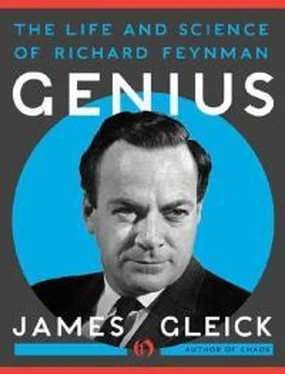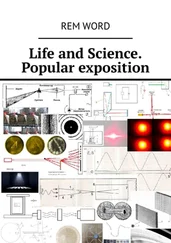especial y, seemed automatical y obscure. Friends told him about Wil iam Faulkner’s famous speech in 1950 (“I believe that man wil not merely endure: he wil prevail”); he did not think he could produce anything so grand, but he wanted to say something memorable, and he did not want to give the précis of quantum electrodynamics that might also be coming from his fel ow winners.
He believed that historians, journalists, and scientists themselves al participated in a tradition of writing about science that obscured the working reality, the sense of science as a process rather than a body of formal results.
Real science was confusion and doubt, ambition and desire, a march through fog. With hindsight, the polished histories tended to impose a post facto logic on the sequence of reasoning and discovery. The appearance of an idea in the scientific literature and the actual communication of the same idea through the community could be sharply different, Feynman knew. He decided to give a personal, anecdotal, and—he claimed—unpolished version of his route to the space-time view of quantum electrodynamics. “We have a habit in writing articles published in scientific journals to make the work as finished as possible,” he began, “to cover up al the tracks, to not worry about the blind al eys or to describe how you had the wrong idea first.”
He described the historic difficulty of infinities in the self-interaction of the electron. He confessed his secret desire as a graduate student to eliminate the field altogether—to produce a theory of direct action between charges. He
recounted his col aboration with Wheeler: “as I was stupid, so was Professor Wheeler that much more clever.” He tried to give his listeners a feeling for what had seemed a new philosophical stance—the wil ingness of a physicist in the post-Einstein era to accept paradoxes without stopping to say, “Oh, no, how could that be?”—and offered his memory of the way his physical viewpoint had evolved. He repeated his view of renormalization: “I think that the renormalization theory is simply a way to sweep the difficulties of the divergences of electrodynamics under the rug. I am, of course, not sure of that.”
He pointed out a remarkable irony of the story. So many of the ideas he nursed on his way to his Nobel Prize–
winning work had themselves proved faulty: his first notion that a charge should not act on itself; the whole Wheeler-Feynman half-advanced, half-retarded electrodynamics.
Even his path integrals and his view of electrons moving backward in time were only aids to guessing, not essential parts of the theory, he said.
The method used here, of reasoning in physical terms, therefore, appears to be extremely inefficient.
On looking back over the work, 1 can only feel a kind of regret for the enormous amount of physical reasoning and mathematical re-expression… .
But he also believed that the inefficiency, the guessing of equations, the juggling of alternative physical viewpoints were, even now, the key to discovering new laws. He
concluded with advice to students: The chance is high that the truth lies in the fashionable direction. But, on the off-chance that it: is in another direction—a direction obvious from an unfashionable view of field theory—who wil find it?
Only someone who has sacrificed himself by teaching himself quantum electrodynamics from a peculiar and unfashionable point of view; one that he may have to invent for himself.
He left Stockholm for Geneva, where he repeated the talk before a jubilant, reverent audience at Europe’s great new accelerator center, CERN, the European Center for Nuclear Research. He said, standing before them in his new dress suit, that the new laureates had been talking about whether they would ever be able to return to normal.
Jacques Monod, who shared the prize for medicine, had declared it was a biological fact that an organism is changed by experience. “I discovered a great difficulty,”
Feynman said, grinning malevolently. “I always took off my coat in giving a lecture, and I just don’t feel like taking it off.”
As he continued, “I’ve changed! I’ve changed!” the audience erupted in laughter and catcal s. He took off the coat.
Once more, he said he would speak as an old man to the young scientists and urge them to break away from the pack. At CERN, as at al the laboratories of high-energy physics, the pack was growing rapidly. Every experiment
required enormous teams. Author lists for articles in the Physical Review were beginning to take up a comical y large portion of the page.
“It wil not do you any harm whatever to think in an original fashion,” Feynman said. He offered a probabilistic argument.
The odds that your theory wil be in fact right, and that the general thing that everybody’s working on wil be wrong, is low. But the odds that you, Little Boy Schmidt, wil be the guy who figures a thing out, is not smal er… . It’s very important that we do not al fol ow the same fashion.
Because although it is ninety percent sure that the answer lies over there, where Gel -Mann is working, what happens if it doesn’t?
“If you give more money to theoretical physics,” he added, “it doesn’t do any good if it just increases the number of guys fol owing the comet head. So it’s necessary to increase the amount of variety … and the only way to do it is to implore you few guys to take a risk with your lives that you wil never be heard of again, and go off in the wild blue yonder and see if you can figure it out.”
Most scientists knew the not-so-amusing metalaw that the receipt of the Nobel Prize marks the end of one’s productive career. For many recipients, of course, the end came long before. For others the fame and distinction tend to accelerate the waning of a scientist’s ability to give his creative work the time-intensive, fanatical concentration it often requires. Some prizewinners fight back. Francis Crick designed a blunt form letter:
Dr. Crick thanks you for your letter but regrets that he is unable to accept your kind invitation to: send an autograph
help you in your project
provide a photograph read your manuscript
cure your disease
deliver a lecture
be interviewed
attend a conference
talk on the radio
act as chairman
appear on TV
become an editor
speak after dinner
write a book
give a testimonial
accept an honorary degree
Requests in most of these categories now fil ed Feynman’s mail (except that his correspondents tended more toward hear my theory of the universe than cure my disease).
Mature
scientists
did
become
laboratory
heads,
department
chairmen,
foundation
officials,
institute
directors. Victor Weisskopf, one of those whom the prize had just barely eluded, was now director of CERN, and he thought Feynman, too, would be driven wil y-nil y into administration. He goaded Feynman into accepting a wager, signed before witnesses: “Mr. F EYNMAN wil pay the sum of TEN DOLLARS to Mr. WEISSKOPF if at any time during the next TEN YEARS (i.e. before the THIRTY FIRST DAY of DECEMBER of the YEAR ONE THOUSAND NINE HUNDRED AND
SEVENTY FIVE), the said Mr. FEYNMAN has held a ‘responsible position.’” They had no disagreement about what that would
mean:
For the purpose of the aforementioned WAGER, the term “responsible position” shal be taken to signify a position which, by reason of its nature, compels the holder to issue instructions to other persons to carry out certain acts, notwithstanding the fact that the holder has no understanding whatsoever of that which he is instructing the aforesaid persons to accomplish.
Читать дальше












